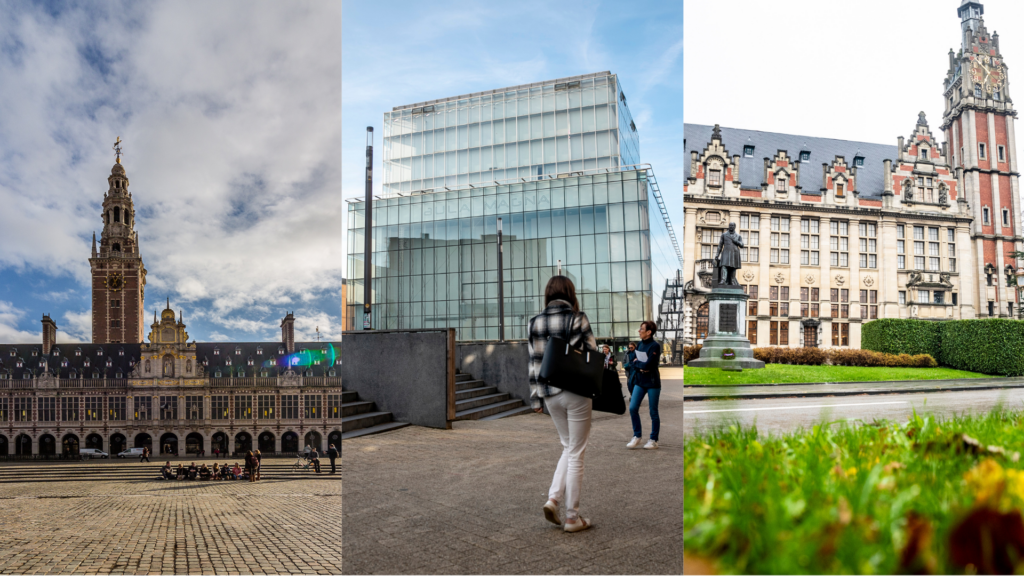With its cosmopolitan outlook and status as the capital of European politics and centre for world organisations, Belgium is an appealing place to study. With many courses taught in English, international students increasingly see the country as a destination for higher education.
And Belgium has no shortage of universities which offer a plethora of courses, many taught by global experts. The Brussels Times has created a guide of the best internationally-ranked research universities the country has to offer.
Katholieke Universiteit Leuven (KUL)
Almost 600 years old, the Dutch-speaking institution remains the only Belgian university ranked in the top 100 QS World University Rankings (#63 in the 2025 ranking). The university offers 123 degrees taught in English, predominantly at the Leuven campus but also in Brussels, Ghent, Antwerp, Geel and De Nayer.
Notably, the university is one of the partners of a research programme into European studies organised by eight different institutions in Europe, a spokesperson from the university highlighted to The Brussels Times.
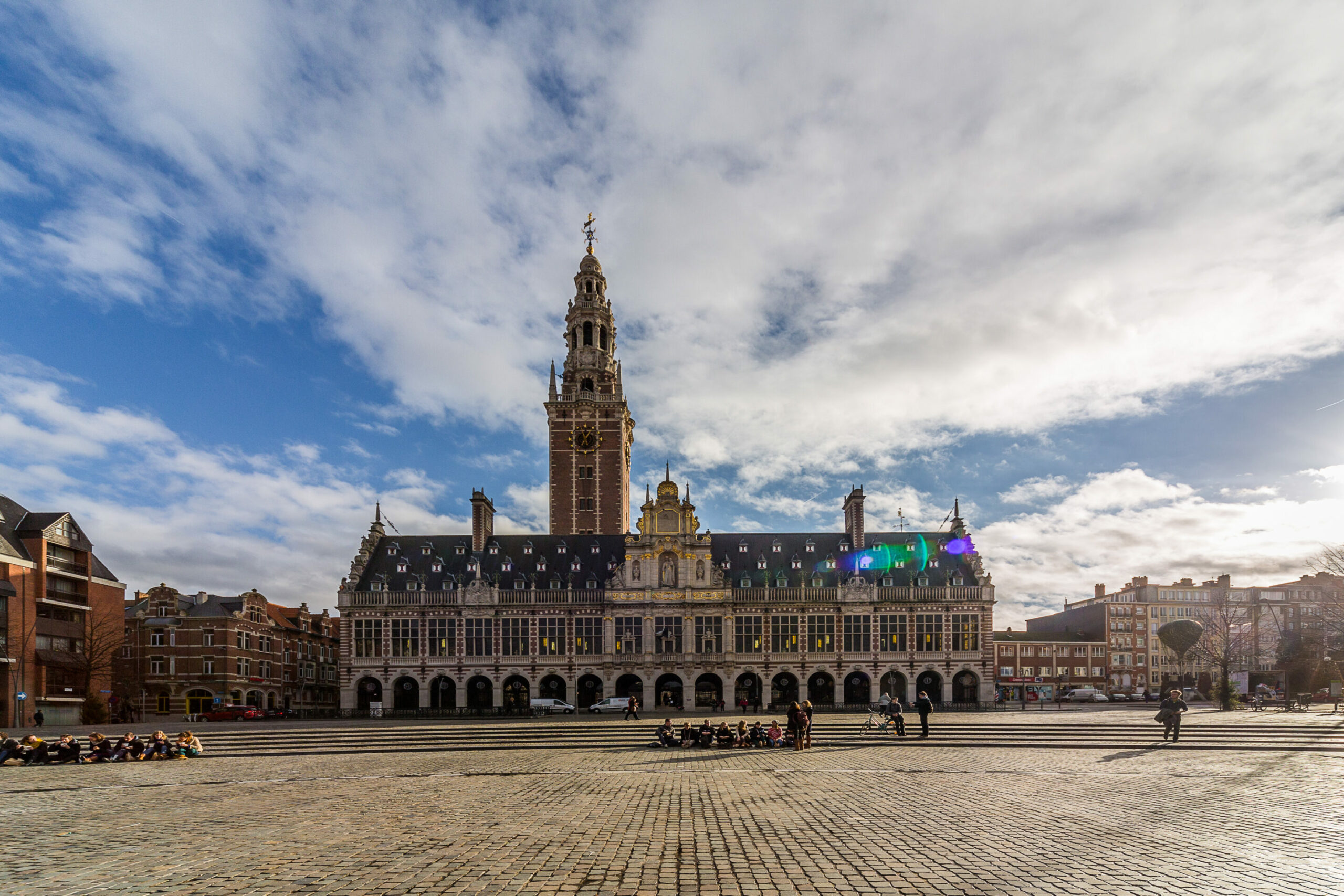
KUL University Library in 2014. Credit: Belga / Siska Gremmelprez
Last academic year, almost 16,000 of the 63,761 students were internationals. The three most common nationalities of non-Belgian students were Chinese, Dutch and Italian. Around 3,546 out of 13,767 staff members are international, according to data from the end of 2022.
University of Ghent (UGent)
Ghent is the largest student city in Flanders with over 80,000 students enrolled at the local university and university college, according to a spokesperson for the UGhent.
The university offers a total of 110 degrees in English. Though it is well known for its work within the biotechnology industry and its veterinary science programme, the university has also made headlines with its Taylor Swift-inspired literature course.
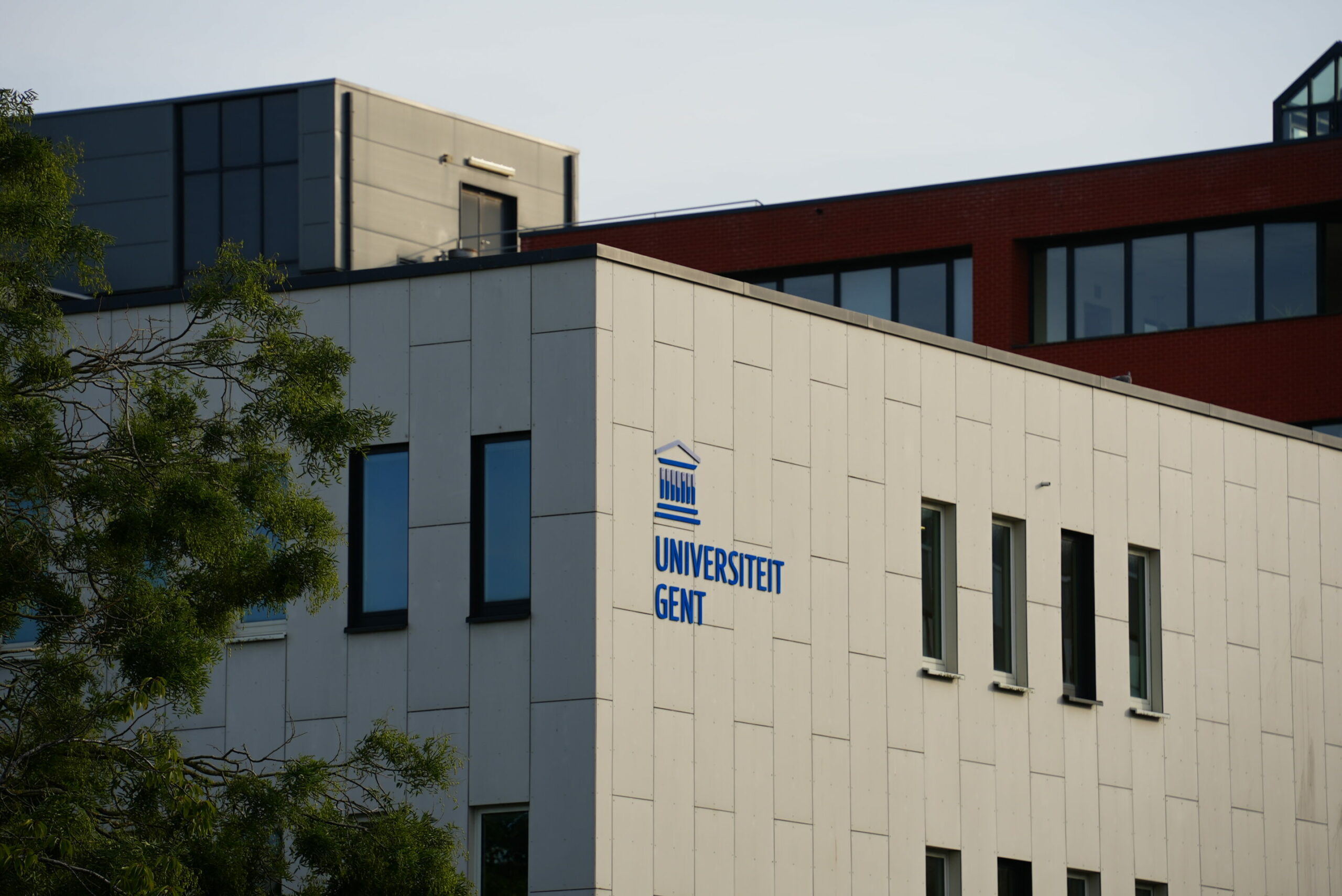
Credit: Belga / Jonas Dhollander
For the non-Swifties, UGent is notable as the first European university to be part of the Global University Campus in South Korea.
The institution had almost 52,000 students last year, with 9,039 of them being international. Around 12% of the staff of the university and the university hospital are from abroad.
Université catholique de Louvain (UCLouvain)
Not to be confused with its Dutch-speaking counterpart, the French-speaking university has faculties spread across 5 different cities: Louvain-la-Neuve, Brussels, Mons, Tournai and Charleroi.
Though English options for bachelor’s are mostly limited to bilingual degrees, the university does offer 36 master programmes fully in English.
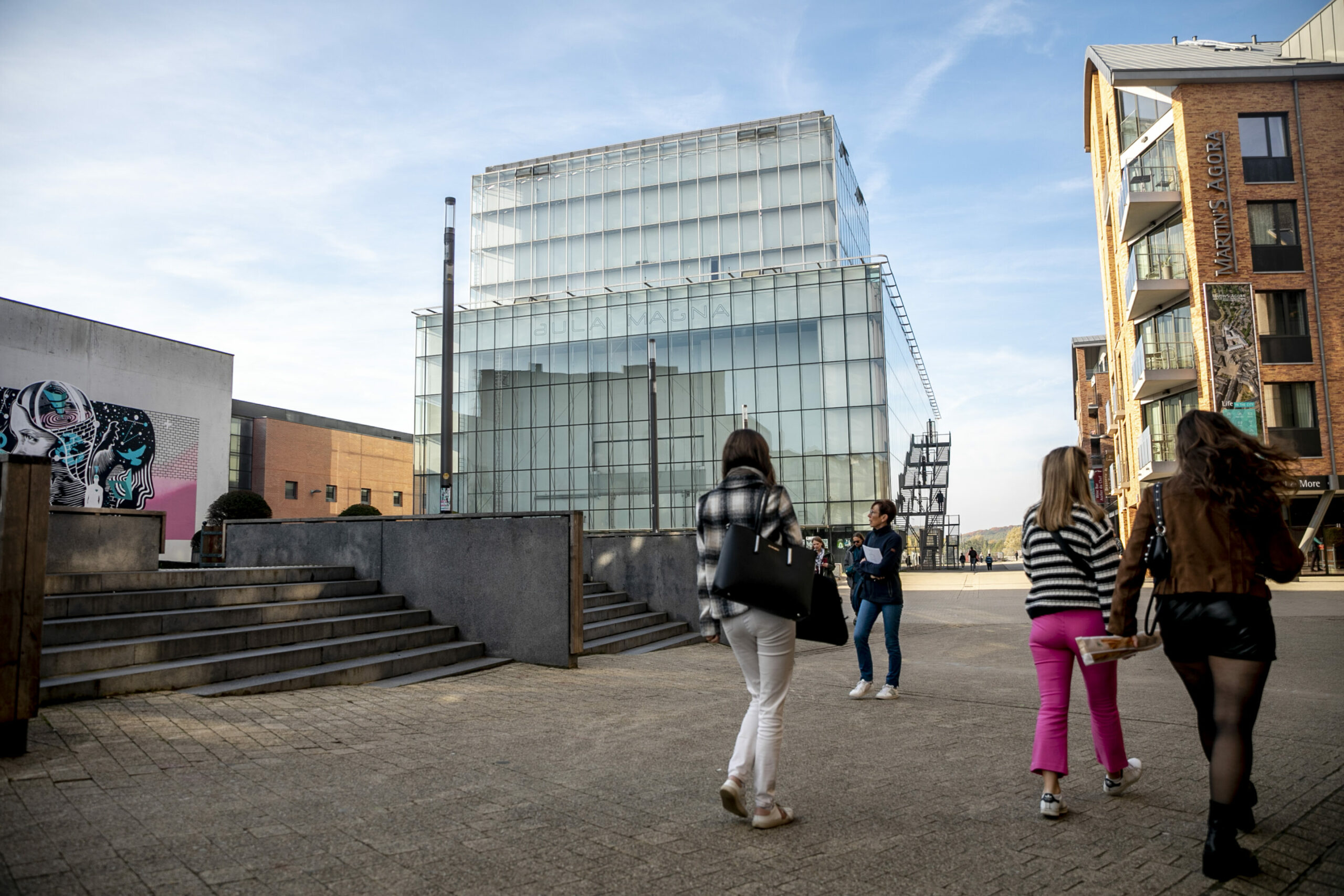
Aula Magna building of the UCLouvain in 2022. Credit: Belga / Hatim Kaghat
The university is well known for its research in multiple scientific disciplines as well as its cross-disciplinary degrees. The institution is also the academic home to the late Dr Christian De Duve, who won a Nobel prize in Medicine in 1974.
Just over 8,000 out of the 37,900 students in the last academic year were international. 1,430 of its 6,800 staff members were from abroad.
Université Libre de Bruxelles (ULB)
Founded in 1834, ULB is spread across Brussels and Wallonia, with five locations in the capital and two in Charleroi.
The university offers 101 programmes in English. The institution also highlights its French language courses available to support the development of the language skills of international students.
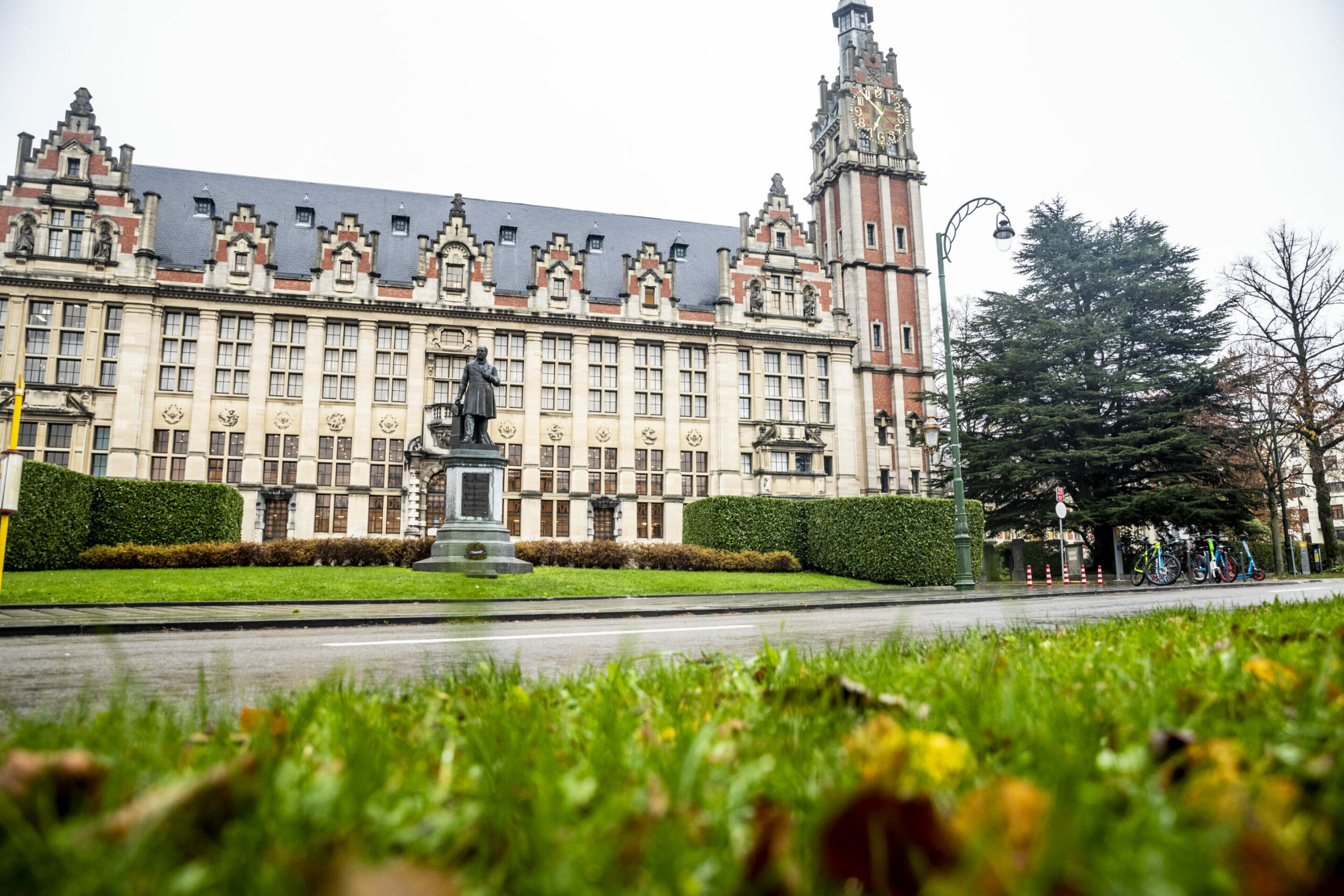
Credit: Belga / Hatim Kaghat
The university has multiple Nobel prize winners among alumni, mostly in scientific disciplines.
It has over 38,000 students, 32% of whom are non-Belgian. Around 50% of its PhD candidates are from outside of Belgium.
University of Antwerp (UAntwerp)
The city with one of the world’s largest ports is also home to the University of Antwerp, officially established in 2003 after the merger of three separate educational institutes.
Although its degrees in economics and law are most in demand, many internationals choose it for other programmes such as physics, a UAntwerp spokesperson told The Brussels Times. The institute offers 29 programmes in English, 20 of which are at a master’s level.
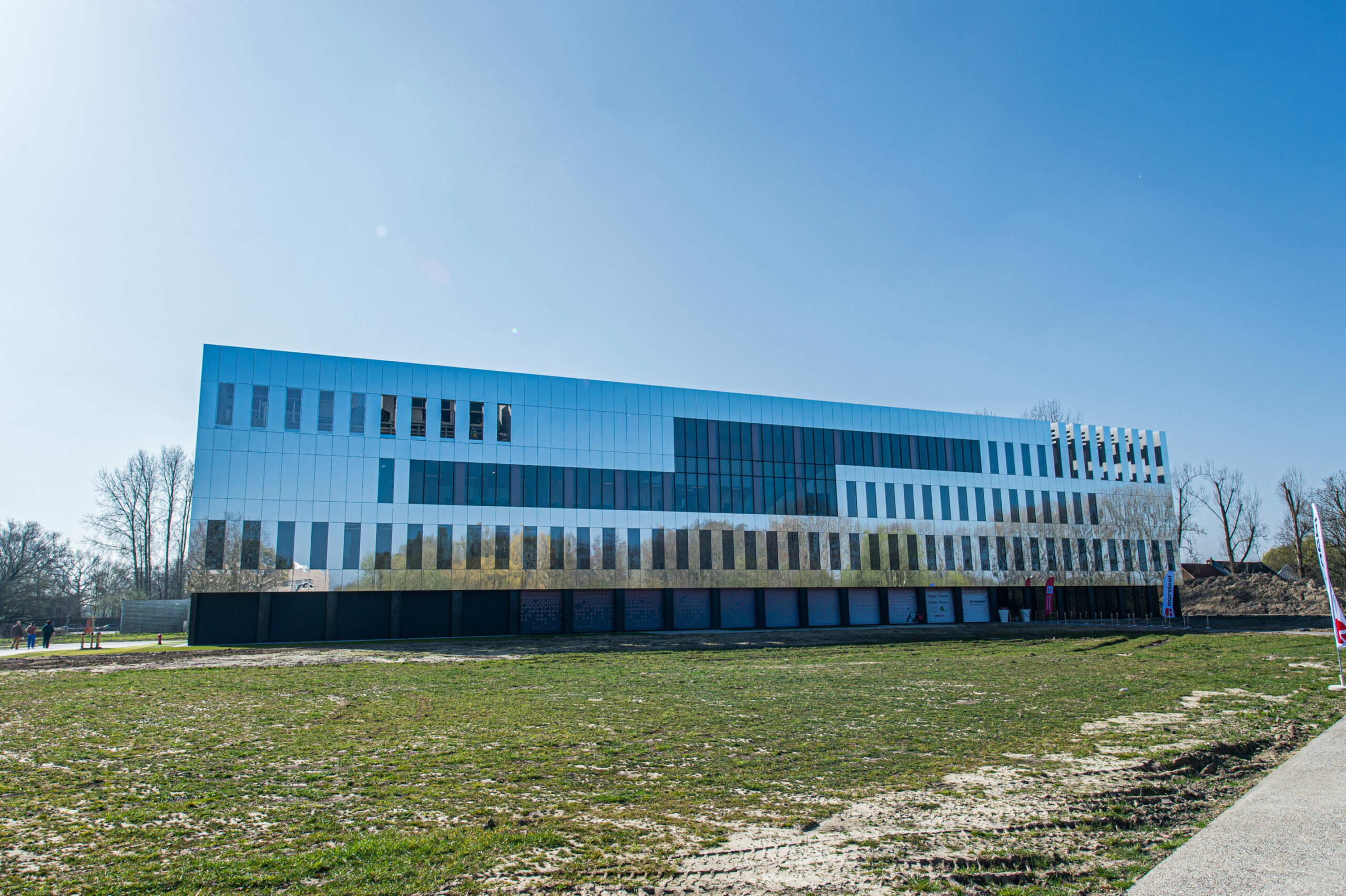
Vaccinopolis building in 2022. Credit: Belga / Jonas Roosens
The university has one of the most powerful electron microscopes worldwide and is also known for its research facility with a focus on vaccination.
Out of the 23,202 students, 17.5% came from outside of Belgium. Similarly, 23% of staff members are internationals, according to the university’s latest figures.
Vrije Universiteit Brussel (VUB)
Although it has five different campuses, the university locations are all found in Brussels. VUB offers 73 programmes taught in English, though only three are at a bachelor’s level.
Studies within the faculty of engineering, bio-engineering sciences, and social sciences and business, are most popular among the international cohort, according to 2022 figures.
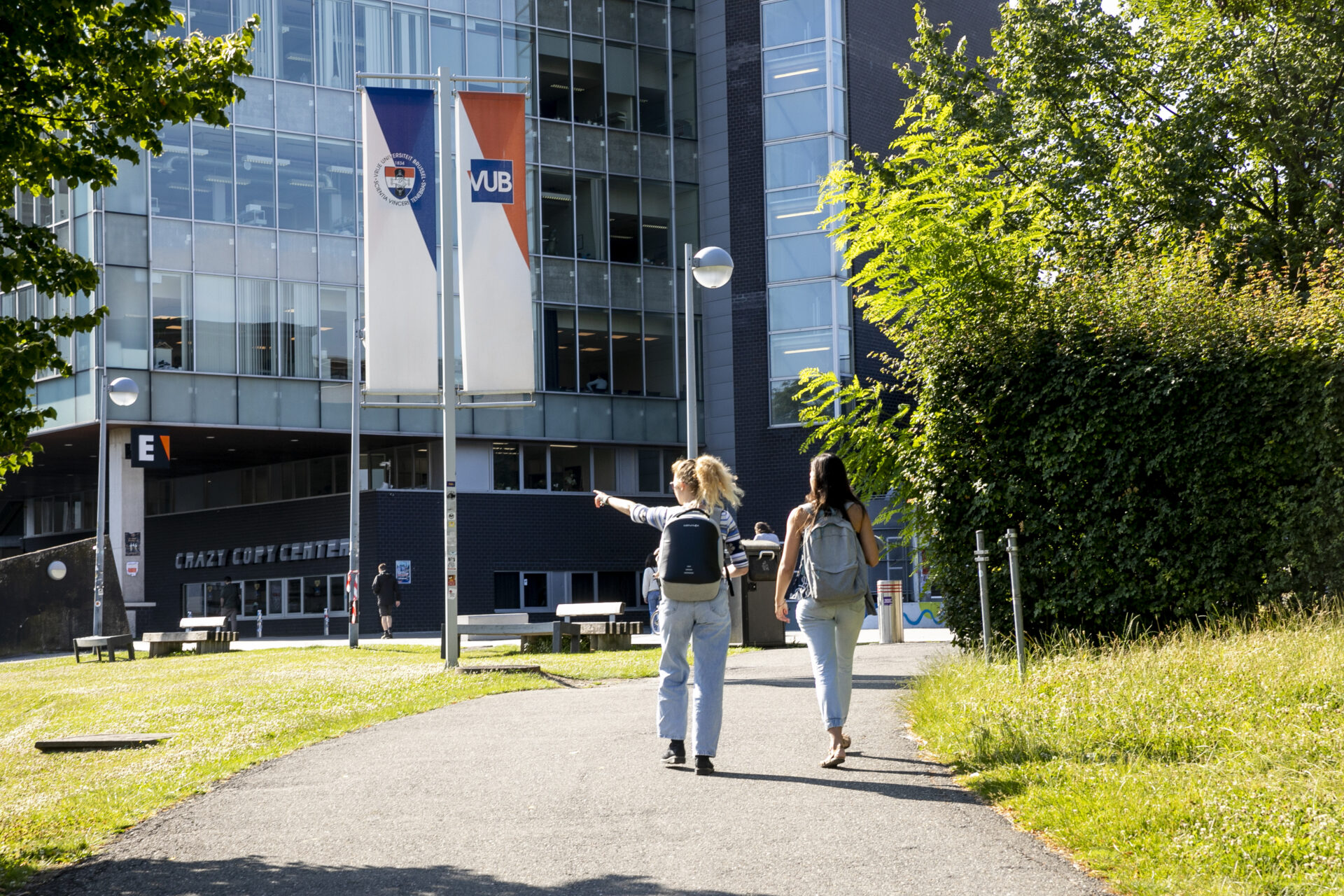
Credit: Belga / Hatim Kaghat
The university focuses on urban engagement and internationalisation within research and education. It numbers over 21,000 students, almost 24% of whom are internationals. The most common nationalities of non-Belgian students are Dutch, Italian and Spanish. It has over 4,000 staff members.
University of Liège (ULiège)
Founded in 1817, the ULiège is spread across three cities in Wallonia: Liège, Gembloux and Arlon.
The university strongly promotes interdisciplinary teaching and research, with three major interdisciplinary research centres that focus on biomedical research, animal health, and environmental sciences and biotechnology. The institution has 62 programmes that are either bilingual or fully taught in English.
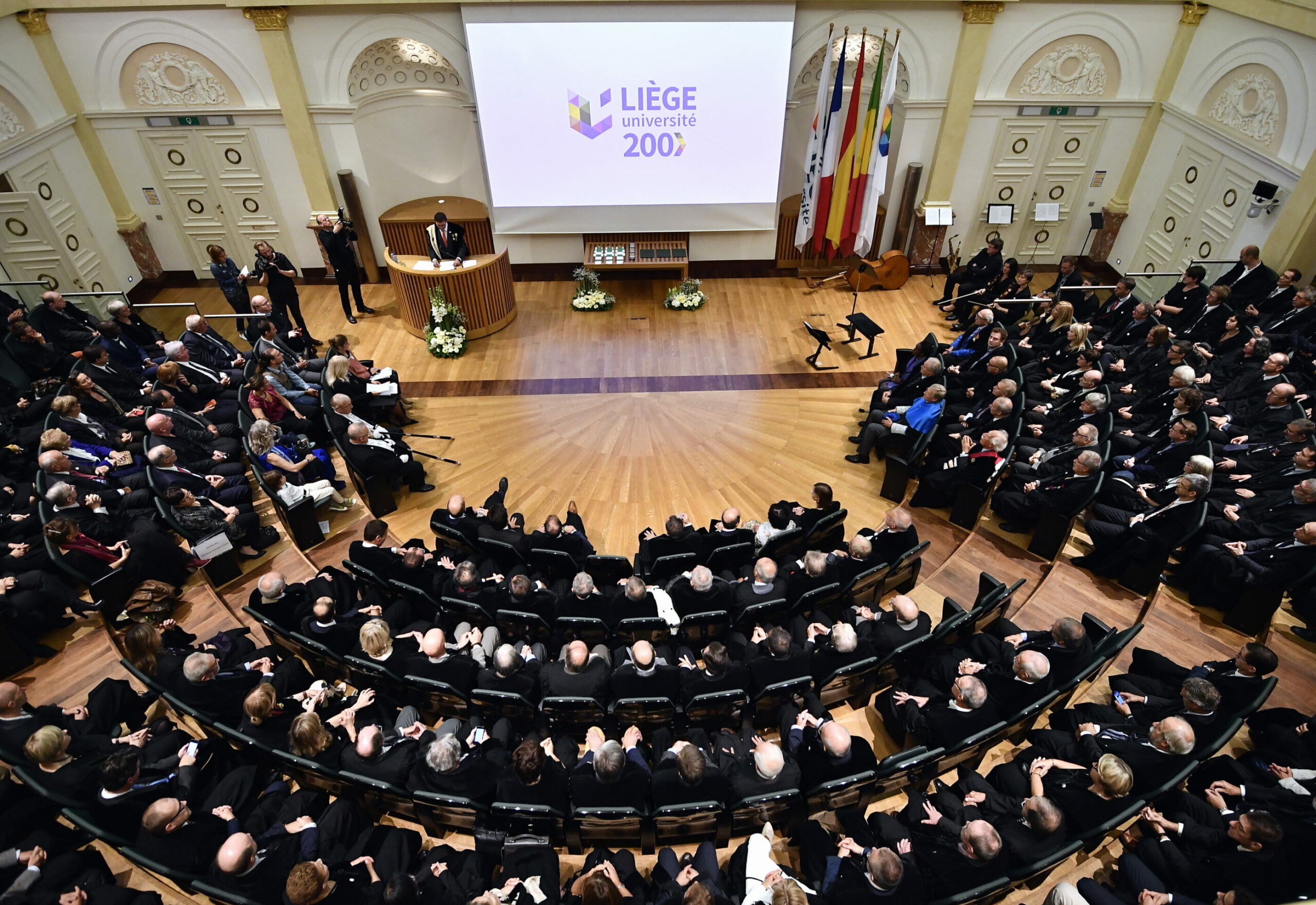
Credit: Belga / Eric Lalmand
Earlier this year, the city of Liège was awarded the ‘Learning City’ status by UNESCO, describing it as a city focused on inclusive learning.
In the last academic year, the university had around 27,000 students, 24% of whom were internationals. Around 24% of the teaching staff were from abroad, while for the academic staff it was 9%.
University of Hasselt (UHasselt)
The self-described "civic university" is spread across two campuses in the province of Limburg; one in the centre of Hasselt and one in Diepenbeek, a bit closer to nature.
The university focuses on interactive teaching with small groups of students. It is well known for its degree in statistics and data sciences, though the degrees in the medical field, law and architecture also appeal to many students, according to a UHasselt spokesperson.
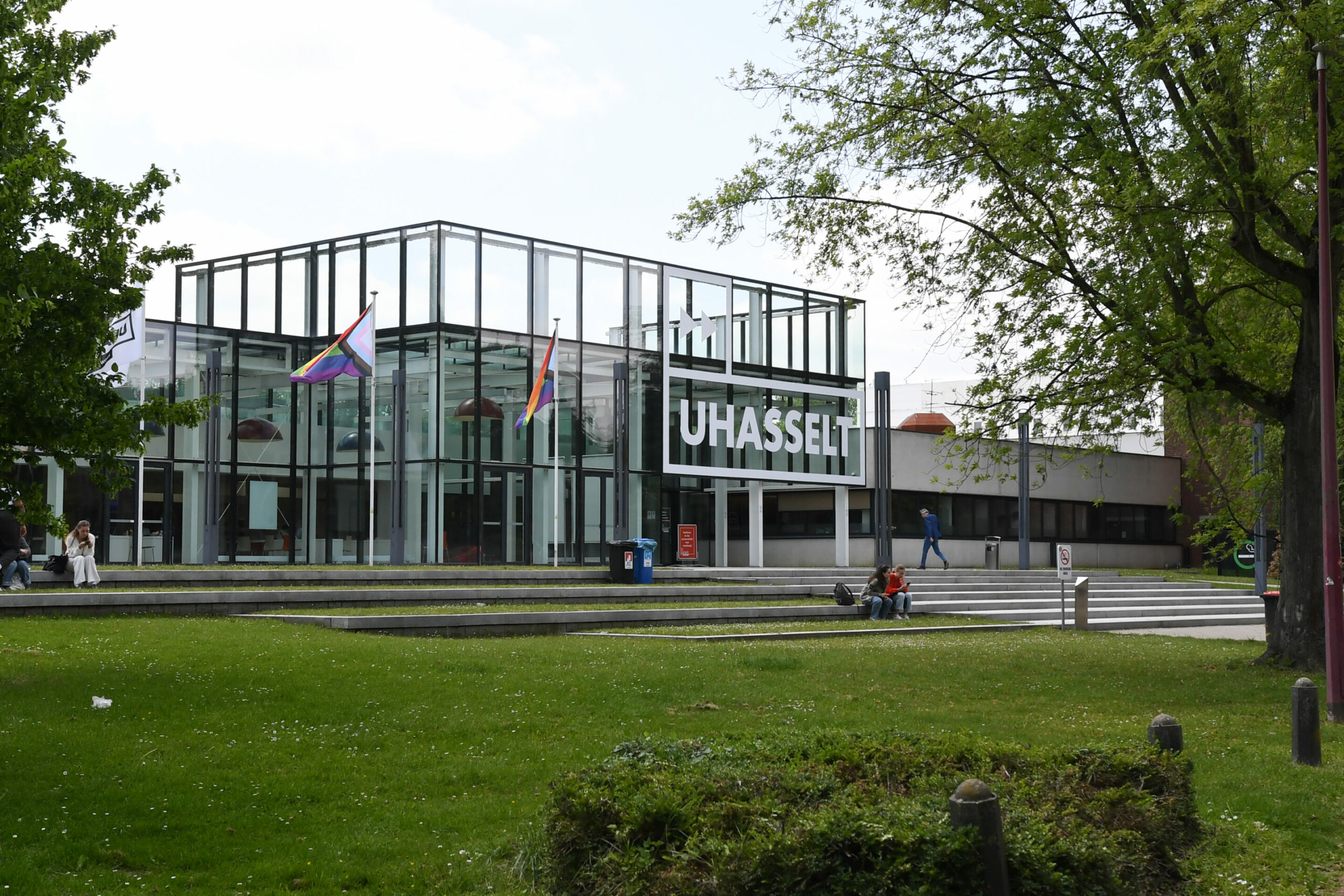
Credit: Belga / Jill Delsaux
The university offers six master's degrees in English, two of which have an option for distance learning. The spokesperson highlighted the transportation sciences degree as a relatively unique course dedicated to the challenges and opportunities within transportation.
1,100 students of the 7,100 enrolled last year were internationals. Out of the 1,700 staff members last year, around 15% were from outside Belgium.
University of Mons (UMons)
Officially formed in 2009 after the merger of two institutes, the university welcomes students at two different locations namely Mons and Charleroi.
Currently the university has seven degrees fully taught in English within the faculty of Engineering and (bio)medical and pharmaceutical sciences. However, the university aims to expand the range of courses taught in English, a UMons spokesperson told The Brussels Times.
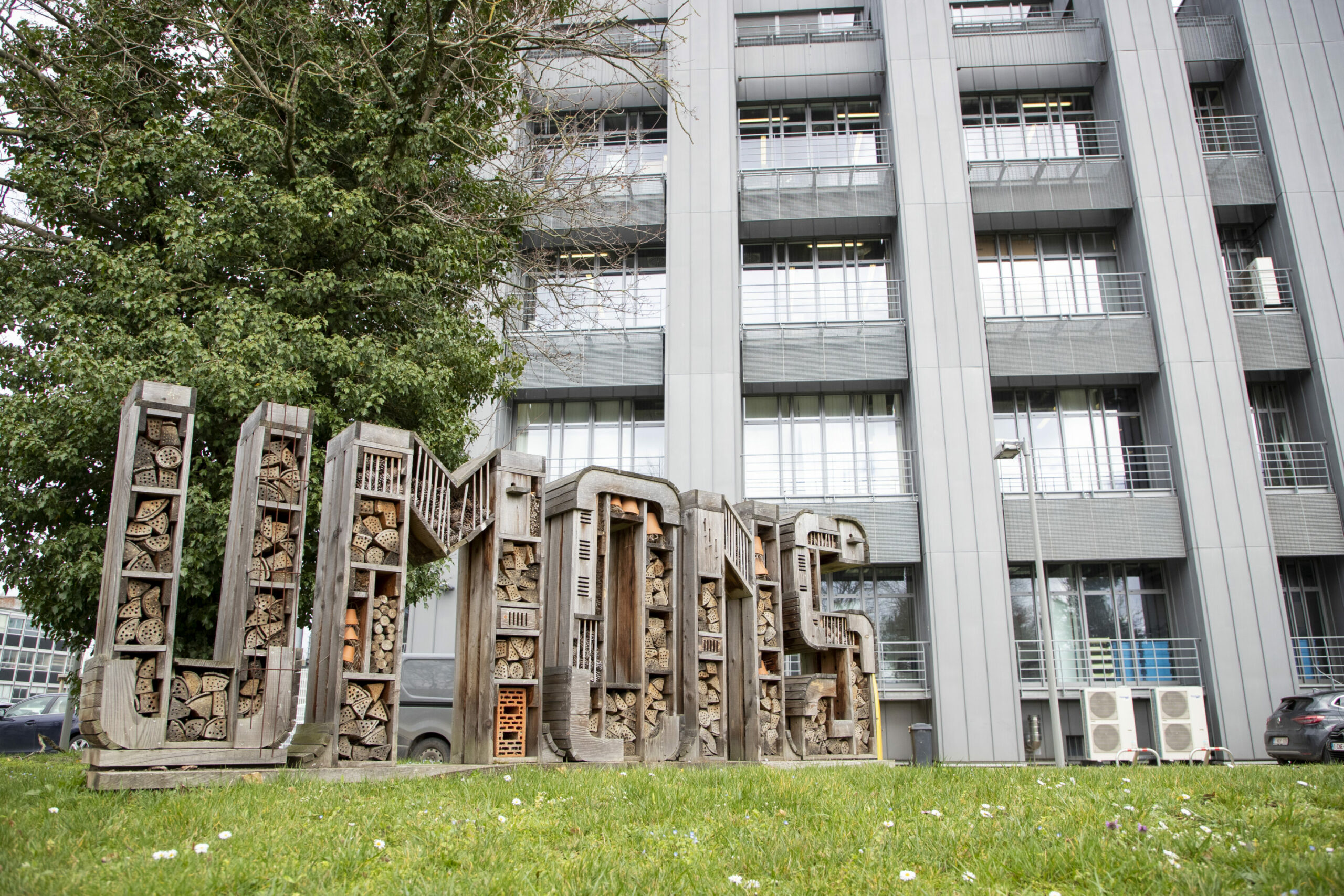
Credit: Belga / Nicolas Maeterlinck
UMons is particularly well known for its research within the fields of chemistry and materials science.
The university has around 10,000 students, 25% of whom are international, according to the latest figures on the university’s website. Similarly, around 25% of the researchers at the university are from outside of Belgium.

